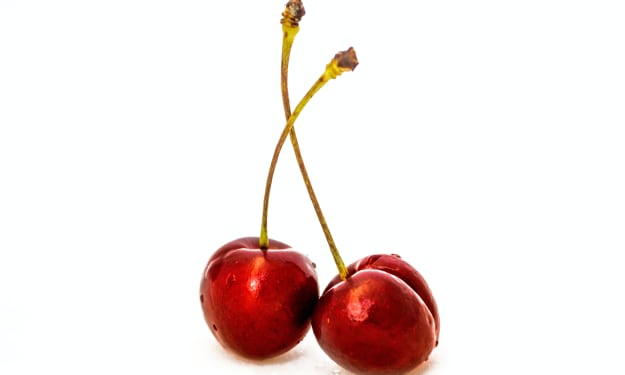Owning My Disability Status
Substituting Shame for Pride

For years, I brought myself unnecessary trauma by ignoring that I was, in fact, disabled. I suffered from Generalized Anxiety Disorder, OCD, and Bipolar Depression since I was very young. Instead of kindness and sympathy, my symptoms were met with shame, from my family and my peers, 10-year-old me battled with comments like, “Nothing in your life is that bad! Snap out of it!” or, “You’re such a waterworks,” even, “There goes Ms. Perfect, worrying about everything.” My neurodivergence was a burden, a downer, a destruction from the things that needed to get done. Popularity eluded me, and I blamed my inability to relate to other kids, my weight, anything besides my emotional health because I didn’t realize my brain was different.
Since I had a rough time trying to fit in with any group of friends, I set my sights on a “best friend” -- a much more attainable goal if I was just looking for one person, right? In my imagination, this would be someone I told everything to, that I could gossip with about who is “dating” whom, that I had over for dinner on nights my mom was cooking her specialty (spaghetti with meat sauce, by the way). This was the middle school sitcom-style dream, and I had to have it so I had someone with which to sing into my hairbrush.
The idea of a “best friend” to me was the 30-something equivalent of finding “the one.” Much like a ticking biological clock, I felt like my time was going to be up once I hit 8th grade. In my search, there was a pattern where I’d cling onto someone for a few weeks or months, and they’d lose interest. There weren’t a lot of people who felt like being best friends with the overly-anxious, crying bookworm because it would hurt their image. Image in middle school was everything; let’s say I didn’t have the most appealing personal brand out there. Again, I pushed the blame on my social ineptitude and my appearance.
That desperate energy carried through, from middle school through my post-grad life 10+ years later. After college, I didn’t just want a best friend to be my focal point; I longed for empathy - from anyone. It was a deep ache at the pit of my stomach. I’d spiral into depressive episodes because I didn’t get that compassion I so longed for from friends and family. The truth is I was waiting for someone to understand exactly what I’ve gone through. I may have gotten a little sympathy here and there, but the misunderstanding was this giant canyon that I couldn’t seem to clear. Wherever I got this feeling that someone knew me -- or could relate to the emotional rollercoaster my life had been -- I clung to whoever gifted it, like they were my lifeline.
In romantic relationships, I couldn’t help but trauma bond quickly with those who “got” my mental health symptoms, moving fast because I didn’t know when I’d ever have the chance to be with someone who understood me again. When romantic partners opened up about their depression, I’d be filled with the compulsive need to shout, “ME TOO.” It was like finding a gem among a bunch of dirt and tiny rocks. That person was DEFINITELY the ONE (a trite conclusion I reached every time, as I planned our wedding in my head).
I was able to navigate around my idiosyncrasies, assuming they were quirks and part of my personality -- until they completely broke me when I was working at a toxic company. If I had been neurotypical, I could have stayed at the job for a few years, ignoring the childish games, gossip, harassment, and backstabbing. I couldn’t get out from under the intrusive thoughts the situation triggered for me, which spun me out into suicidal depression.
I had the stark realization one day in a group therapy course, tears streaming down my face uncontrollably, red in the face - this illness is crushing my life. It always had been in some way, but I was pushed to be able to compete with everyone else: socially, romantically, intellectually, in workplace settings. Despite my immense privilege, I still had faced carrying around a disability alone, in secret, for my entire life.
I didn’t immediately start telling people, “Nice to meet you, I’m disabled.” It was a rocky, vulnerable path to full disclosure and integrating my experience as part of my identity. At first, I disclosed my status to friends, telling them about the rainbow of medications I consumed daily to stay -- what capitalism would deem -- “functional.”
At about 25, I took a huge leap, one that I wasn’t prepared for: I adopted and trained my dog, Anchovy, as a service animal. He would put his little paw on my leg when I started engaging in an OCD ritual -- cute and helpful, he had it all. I was hoping it would save me from embarrassment in the office, but it completely backfired.
Anchovy and I were met with ridicule. People would “test” him to see if he was a “real” service dog by asking him to do certain tricks. I didn’t want to disclose that I had OCD at the time, so that furthered the suspicion that I didn’t actually need a service dog. Coworkers would come up to me and ask, “How did you get your dog certified? I want to bring my dog to work!” With each of these passive accusations, I felt more ostracized, misunderstood, and humiliated than ever -- all for trying to reduce the painful symptoms I experienced on a daily basis. After that semi-traumatic experience, I retreated back into the shadows, hiding my disorders even more.
Through countless group therapy sessions and support groups, it finally started to seep into my subconscious that so many people struggle like I do. I didn’t fully own my disability status until years later, but it was in that ownership that I found peace and pride in this label. It wasn’t my fault, or the fault of those around me that laughed at me; the problem lies in the capitalist ideals of this country, the lack of mental health education, and the overall faults of the mental health system.
Healing was one giant obstacle course for me, and now I’m confident I have the tools to push the boundaries of the systems that oppress neurodivergent people in my own small ways -- like through writing this vulnerable piece. I am proud to say that I have reduced my “cravings” for empathy, and I reduced the amount of “love bombing” I do to people who I feel “get” me.
I’ve begun to weave my own narrative; that acceptance gives me a platform from which to fight for neurodivergent people that still live in fear, who don’t have the privilege to exercise their voice. In the giant cliff-jump of finding pride in my disability, I’ve been able to detach from seeking validation from “best friends” and romantic partners and now see myself as whole.
About the Creator
Rae Shane
I believe we can talk about mental illness in a lighter way, and I’m here to find that sweet spot.
Enjoyed the story? Support the Creator.
Subscribe for free to receive all their stories in your feed. You could also pledge your support or give them a one-off tip, letting them know you appreciate their work.






Comments
There are no comments for this story
Be the first to respond and start the conversation.